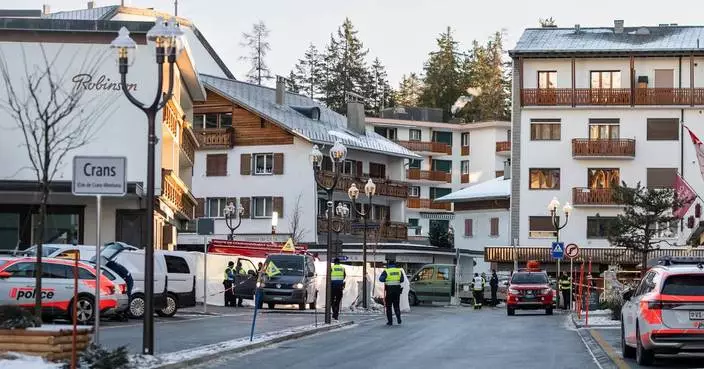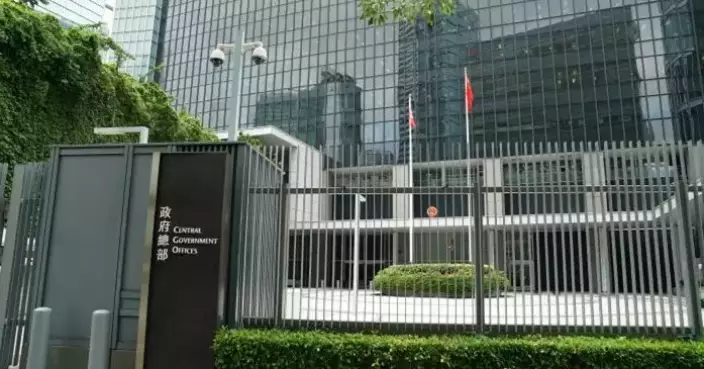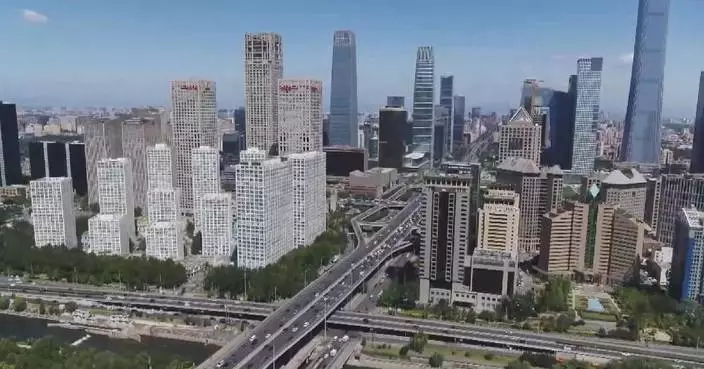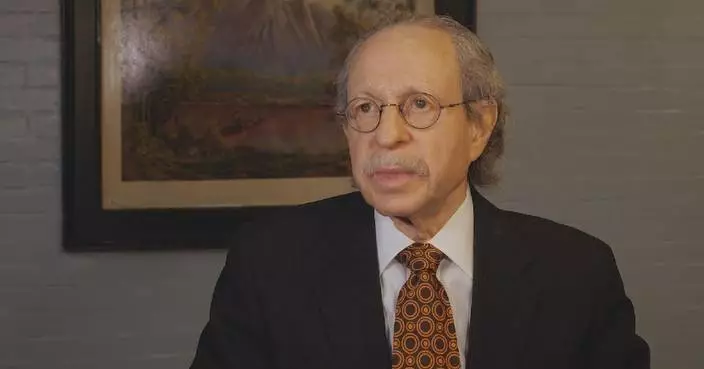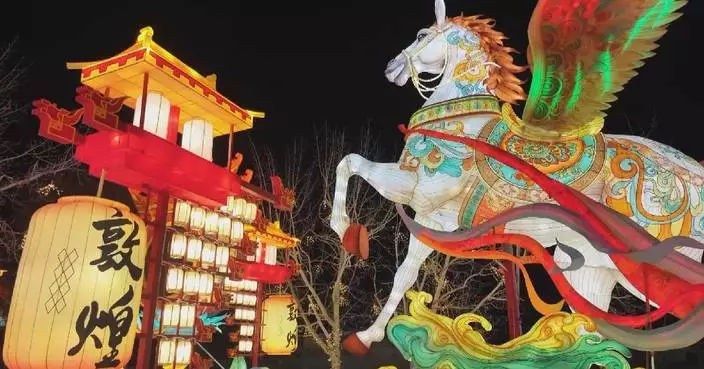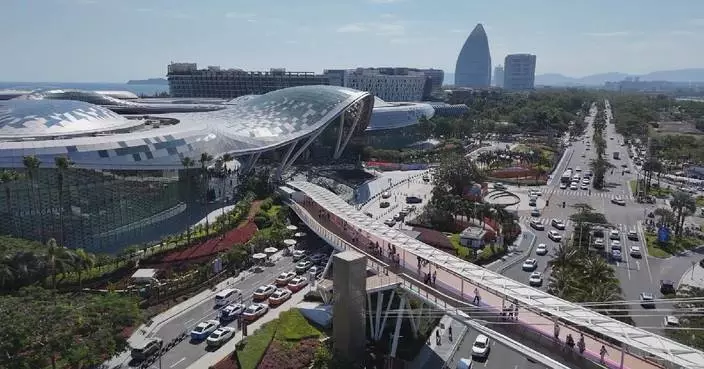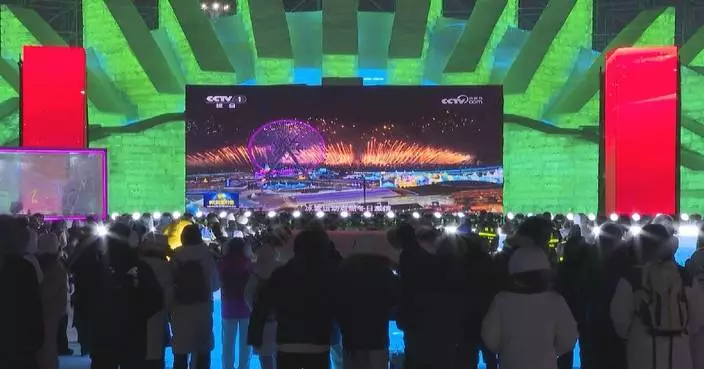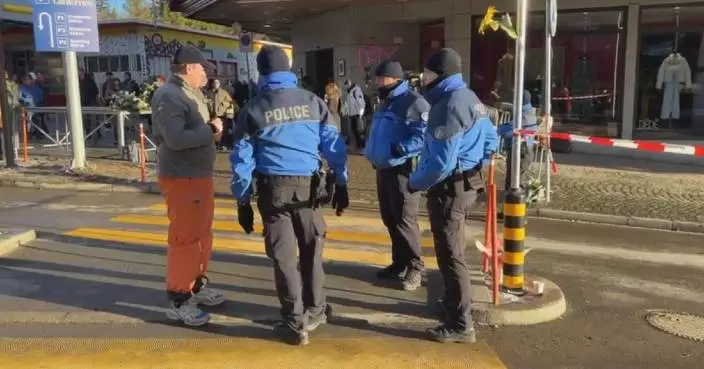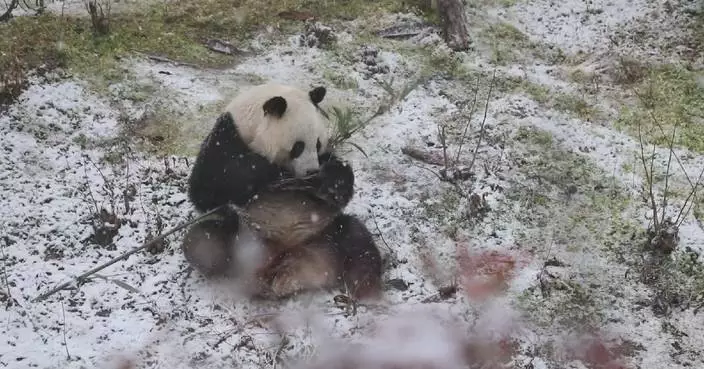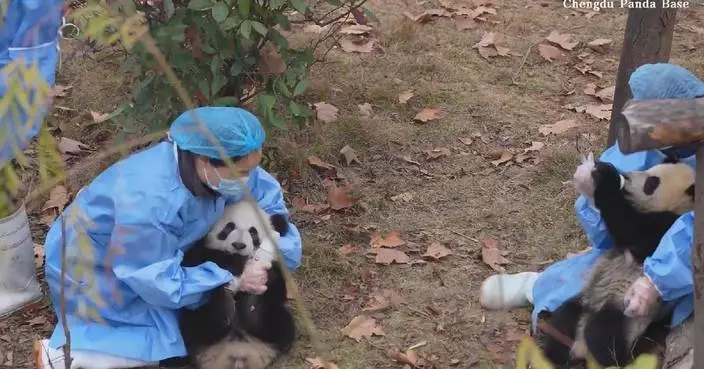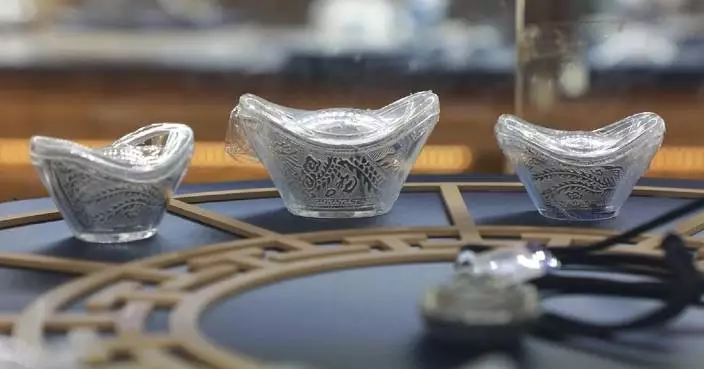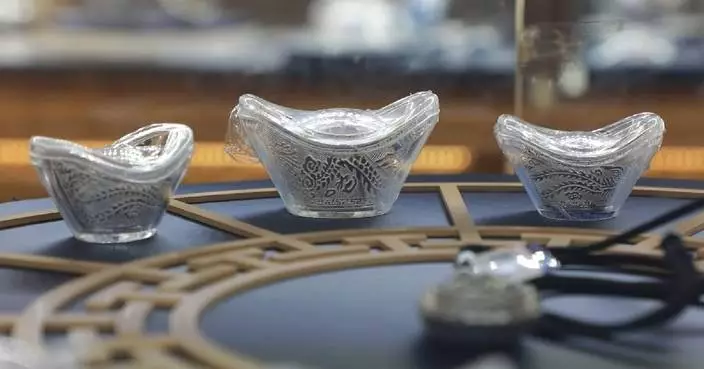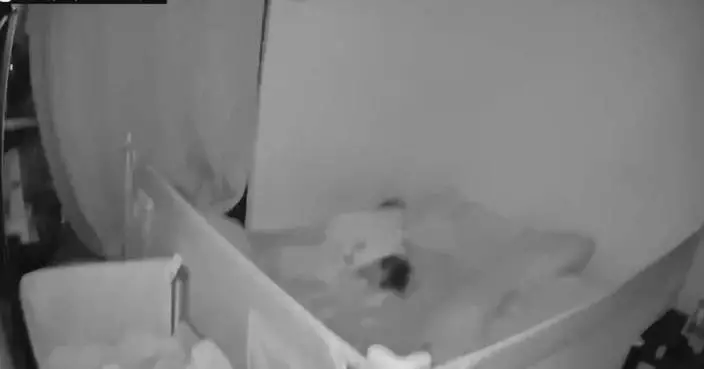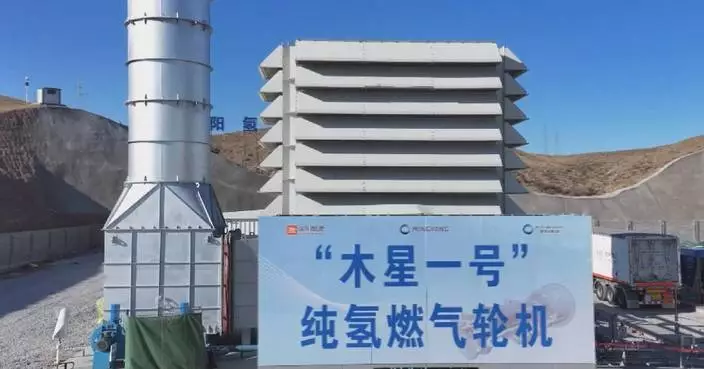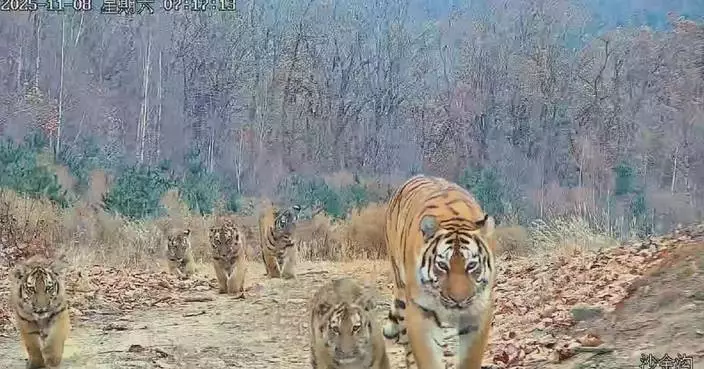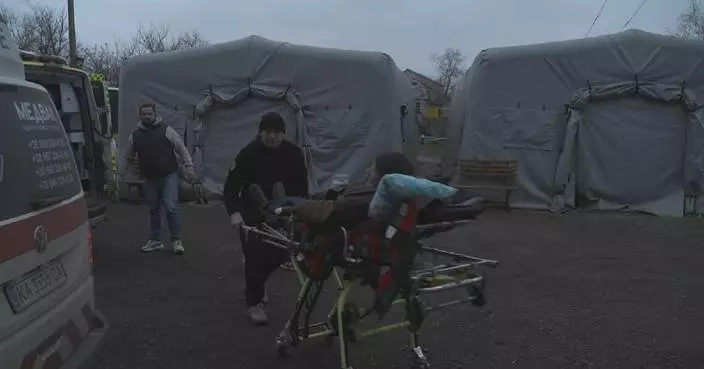Feature · News

Trump says he's dropping push for National Guard in Chicago, LA and Portland, Oregon, for now
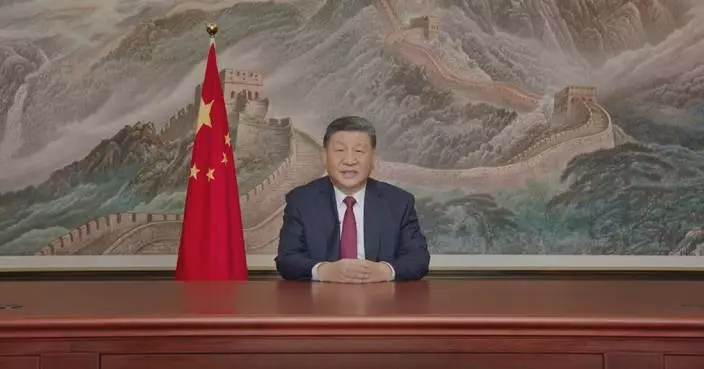
Xi urges promoting high-quality development to write new chapter of China's miracle in 2026
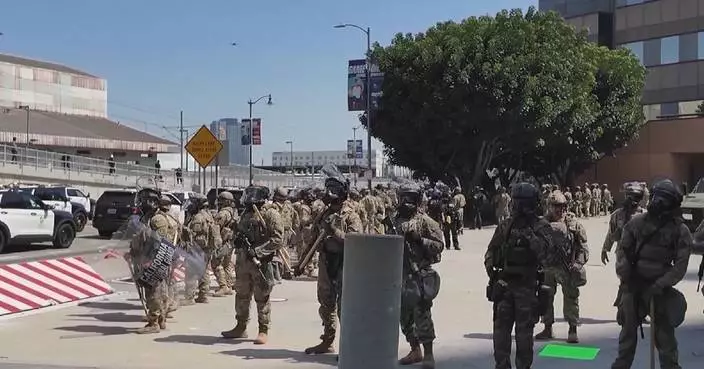
Trump orders removal of National Guard from Chicago, Los Angeles, Portland
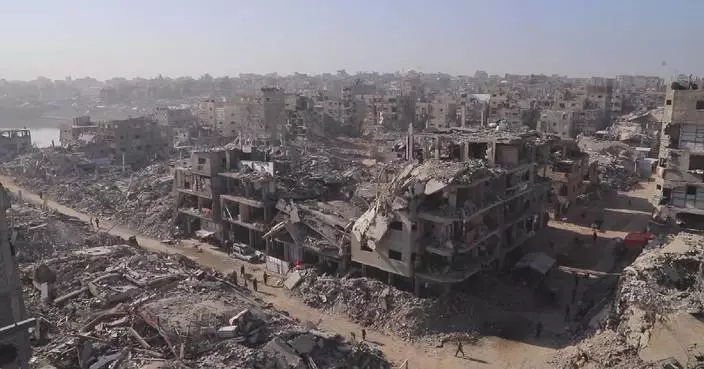
Report reveals widespread destruction, deteriorated humanitarian situation in Gaza in 2025
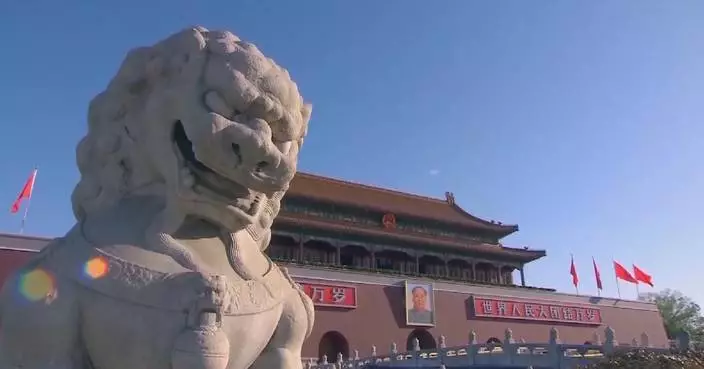
International observers say Xi’s New Year Address sends positive signals to World
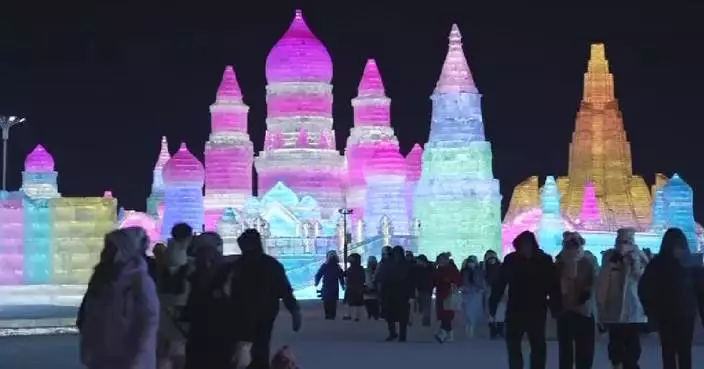
Harbin's winter tourism thrives with new experiences at Ice World
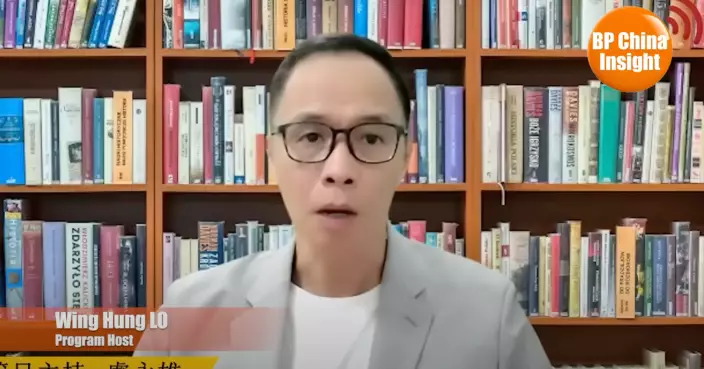
BP China Insight: U.S.'s collective silence on China's military exercises is a state of semi-abandonment
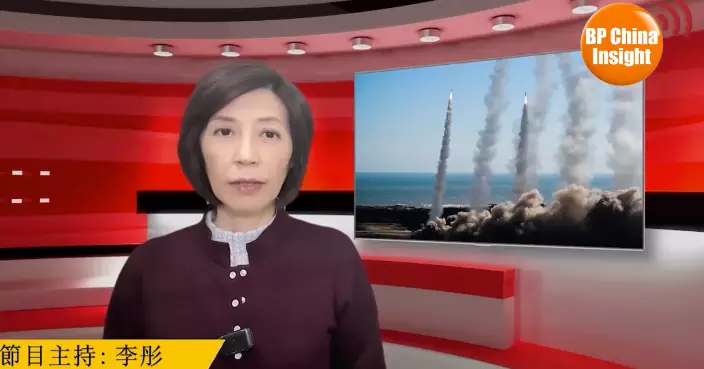
BP China Insight: China calls out “hypocritical” nations over drill concerns
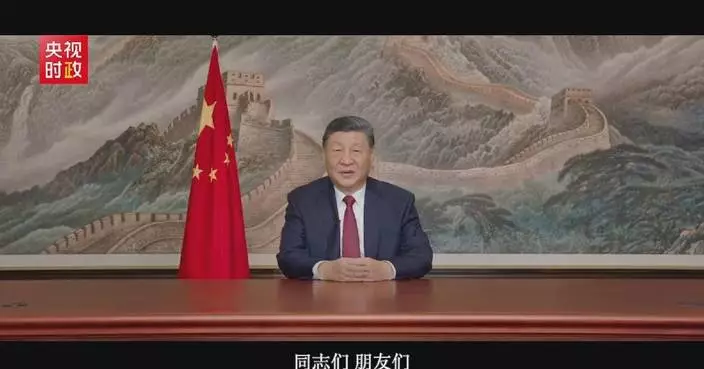
Xi hails achievements, urges more efforts in New Year message
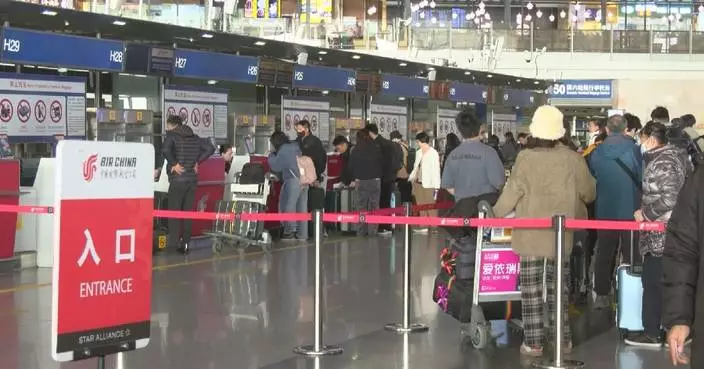
China sees travel surge on New Year's Day
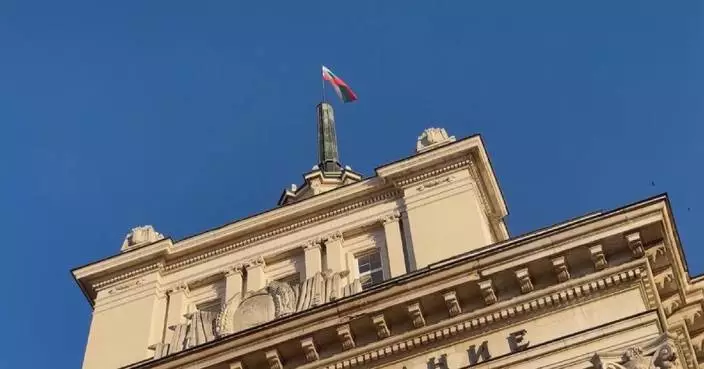
Bulgaria officially adopts euro with short transition period

PLA vows continued support for national prosperity in new year ceremonies

Russia says Ukrainian drone strike kills 24 in occupied Ukraine as tensions grow amid peace talks
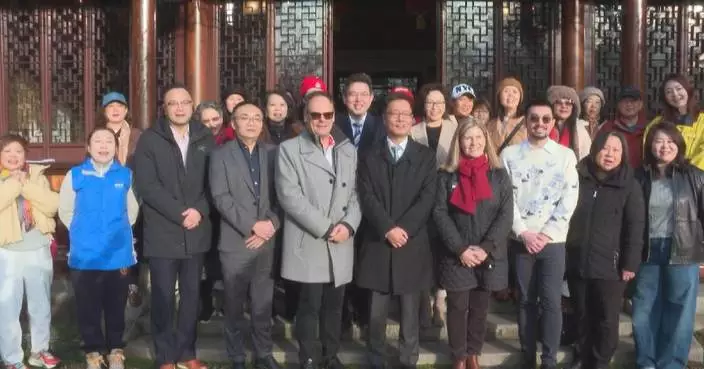
Canada holds welcoming ceremony for Chinese visitors as group tourism resumes
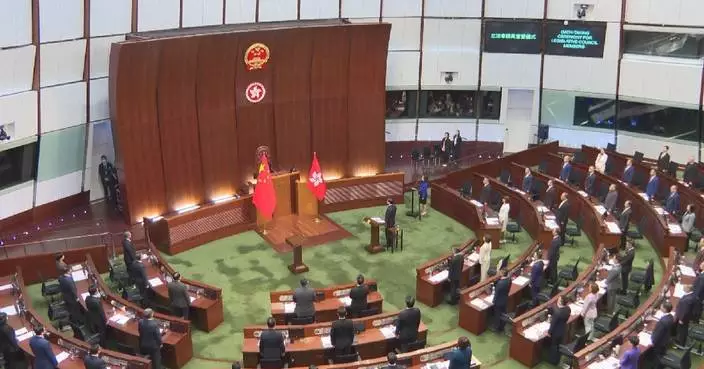
8th-term Legislative Council of HKSAR holds oath-taking ceremony

Pope opens 2026 with plea for peace in countries bloodied by war, families wounded by violence

BP China Insight: U.S.'s collective silence on China's military exercises is a state of semi-abandonment

BP China Insight: China calls out “hypocritical” nations over drill concerns
Xi hails achievements, urges more efforts in New Year message
China sees travel surge on New Year's Day

Trump says he's dropping push for National Guard in Chicago, LA and Portland, Oregon, for now
Xi urges promoting high-quality development to write new chapter of China's miracle in 2026
Trump orders removal of National Guard from Chicago, Los Angeles, Portland
Report reveals widespread destruction, deteriorated humanitarian situation in Gaza in 2025
International observers say Xi’s New Year Address sends positive signals to World
Harbin's winter tourism thrives with new experiences at Ice World
Bulgaria officially adopts euro with short transition period
PLA vows continued support for national prosperity in new year ceremonies

Russia says Ukrainian drone strike kills 24 in occupied Ukraine as tensions grow amid peace talks
Canada holds welcoming ceremony for Chinese visitors as group tourism resumes
8th-term Legislative Council of HKSAR holds oath-taking ceremony

Pope opens 2026 with plea for peace in countries bloodied by war, families wounded by violence
Feature·Bloggers

【Mao Paishou】China Kept Its Word on Soybeans. US Farmers Still Can't Sleep

【What Say You?】Black Riots “comrades” Thought Ukraine Was Another “Resistance”—Then the Contract Hit

【Bastille Commentary】Green Nails? The Lie No Lawyer Would Touch
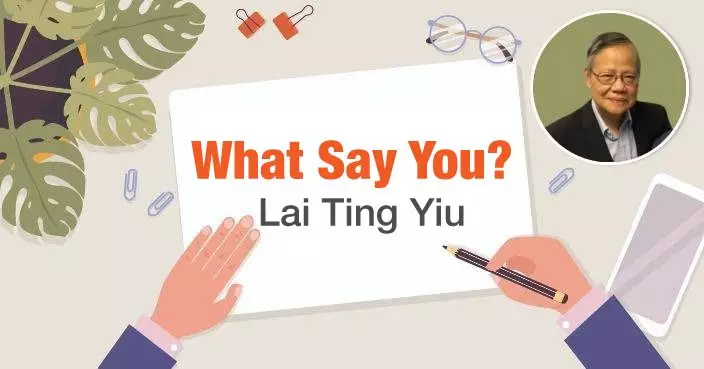
【What Say You?】How Jimmy Lai's Right-Hand Man Ran a Corporate Shakedown Operation

【Deep Blue】Trump's "Empire Strikes Back" Gambit: A Long Shot at Best

【What Say You?】Unfinished business With the “anti-Hong Kong triangle”?
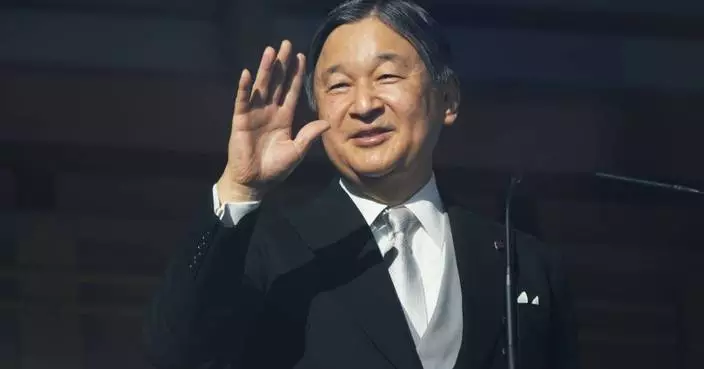
Japan's emperor and his family greet New Year well-wishers
- At least 7 reported killed during widening protests in Iran sparked by ailing economy
- Zohran Mamdani promises to govern 'expansively and audaciously' in inaugural speech as NYC mayor
- Trump, in interview, defends his energy and health, offers new details on screening he underwent
- Brazil's Bolsonaro leaves hospital and returns to jail in capital Brasilia
- Trump delays increased tariffs on upholstered furniture, kitchen cabinets and vanities for a year
- Yemeni transport ministry says Saudi Arabia mandated inspections of flights between Aden and UAE
- Here's what to know about a deadly fire at a Swiss Alpine bar's New Year celebration
- Zohran Mamdani officially sworn in on a Quran full of symbolism
- A look at some of the worst fires in bars, nightclubs and music venues
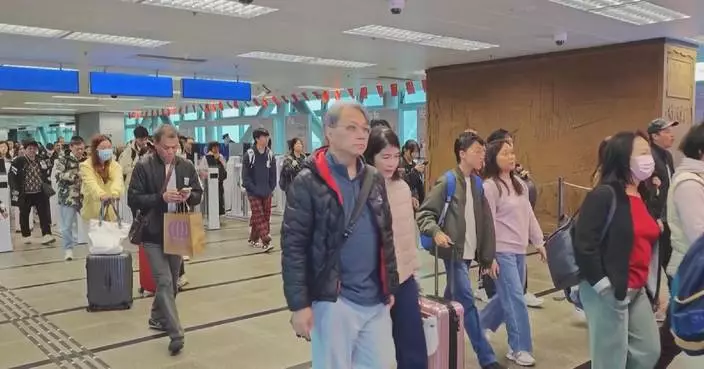
Shenzhen embraces influx of visitors on first day of 2026
- China’s development focuses on people's well-being rather than competition: Russian special envoy
- China's development path contributes experience to global development: experts
- Xinjiang's Grand Bazaar marks arrival of New Year with performance
- Recap of China-US ties in 2025
- Cross-regional passenger trips in China expected to go up 21 percent on New Year's Day
- China's trade-in program generates sales of over 2.6 trillion yuan in 2025: data
- Qingdao Port deploys China’s first vacuum-based automated mooring system
- Chinese immigration authorities expand services to facilitate New Year border crossings
- Xi's New Year message highlights consistency of China's development, positive global impact

Emerging MCU Force ARTERY-KY to Be Listed on TPEx in January 2026, Driving High-Performance Growth Through MCU, Customization, and Edge AI
- A Diamond is Forever And Lane Crawford Launch "The Forever Gifts: A Natural Diamond Series"
- Three Partners Launch Independent Law Practice Following Departure from Mayer Brown PK Wong & Nair
- Tineco Debuts Modern Living Concept and Latest Smart Cleaning Lineup at CES 2026
- Artistic Entertainment Services Wins 6 Rose Parade® Trophies for its Float Entries
- CIM Group Signs Lease with Atlanta Soul Food Icon The Busy Bee for New Location at Centennial Yards
- Sephora Unwraps Another Year of Beauty with its 2026 Beauty Insider Birthday Gift Offerings
- New Year's Day: What's open? Retailers. What's closed? Government and banks
- Commerce Bancshares, Inc. Completes FineMark Holdings, Inc. Acquisition
- Bulgaria is joining the euro. Here's what it means for consumers and businesses
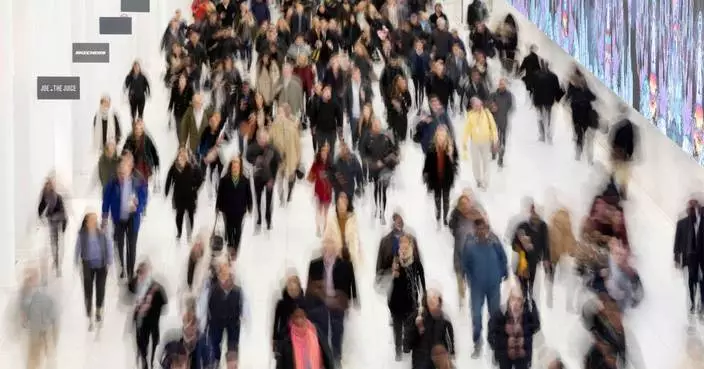
If someone's always late, is it time blindness, or are they just being rude?
- Flu is rising rapidly, driven by a new variant. Here's what to know
- Meta buys startup Manus in latest move to advance its artificial intelligence efforts
- The year's first meteor shower and supermoon clash in January skies
- What's inside Mexico's Popocatépetl volcano? Scientists obtain first 3D images
- 2025 was one of three hottest years on record, scientists say
- Trying to improve your health and wellness in 2026? Keep it simple
- The moon and sun figure big in the new year's lineup of cosmic wonders
- New York subway ends its MetroCard era and switches fully to tap-and-go fares
- Foods with healthy-sounding buzzwords could be hiding added sugar in plain sight
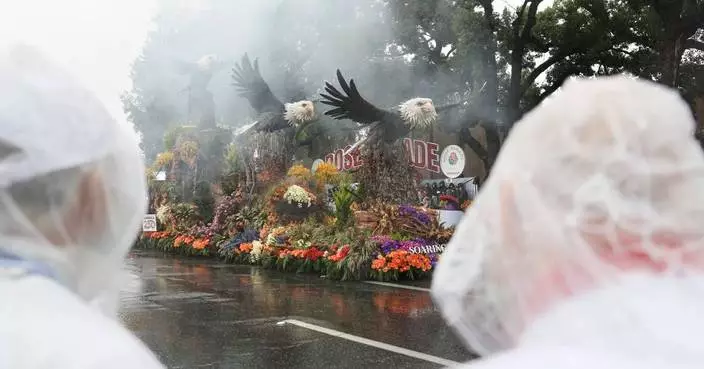
Rain soaks Rose Parade in California and snow squalls hit Midwest and Northeast on first day of 2026
- Bad Bunny's 'Debí Tirar Más Fotos' could make Grammy history
- Greece and Cyprus are welcoming 2026 without the bang
- Cities around the world welcome 2026 with thunderous fireworks and heightened security
- A Kenyan barber who wields a sharpened shovel thrives on Africa's social media craze
- Photos show the ancient art of Peking opera works hard to keep flourishing in the digital age
- French government defends granting citizenship to George and Amal Clooney
- Betty Boop and 'Blondie' enter the public domain in 2026, accompanied by a trio of detectives
- Nasty weather on tap for New Year fetes at Rose Parade in California and revelers in New York City
- English actors Tom Hiddleston and Zawe Ashton welcome their second child

Durant has been hurt the way Jokic was. He hopes the Nuggets star doesn't also become 'injury prone'
- Quick strikes from Caufield and Anderson help Canadiens rally for 7-5 win over Hurricanes
- Letang scores in OT in his 1,200th game to give Penguins 4-3 win against Red Wings
- Matthews scores a hat trick to lead Maple Leafs to 6-5 comeback win over Jets
- Cirelli, Goncalves key Lightning's 3rd-period comeback for their 6th straight win, 5-3 over LA Kings
- Norman Powell scores 36 points to lead Heat past Pistons 118-112
- Pakistan-born Australian Khawaja, set to retire from cricket, criticizes racial stereotypes
- Blackhawks coach Jeff Blashill praises Connor Bedard after the center is left off Canada's roster
- Durant and Thompson lead the Rockets past the Nets 120-96 for their 4th straight victory
- Venus Williams is back at the Australian Open 5 years after her last appearance, 28 after her 1st

Public Consultation Begins for Now TV's Pay TV Licence Renewal
- Transport Department Invites Applications for New Minibus Route License in New Territories
- CHP Urges Vulnerable Groups to Take Precautions Amid Cold Weather Conditions
- Yau Ma Tei Police Station Exhibition Opens: Explore Hong Kong's Cinematic History!
- Hospital Authority's Healthcare Reform Successfully Implemented, Ensuring Smooth Operations Post-New Year Holiday
- Public Healthcare Fee Reform Officially Launched, Enhances Patient Protection and Accessibility in Hong Kong Hospitals
- Home Affairs Opens 18 Cold Shelters Amid Severe Weather for Those in Need
- No New Chikungunya Fever Cases Reported in Hong Kong, Total Stands at 82 for the Year
- CHP Urges Vulnerable Groups to Take Precautions Amid Cold Weather Risks
- Government Announces New Appointments to ICAC Advisory Committees for Two-Year Terms Starting January 1, 2026
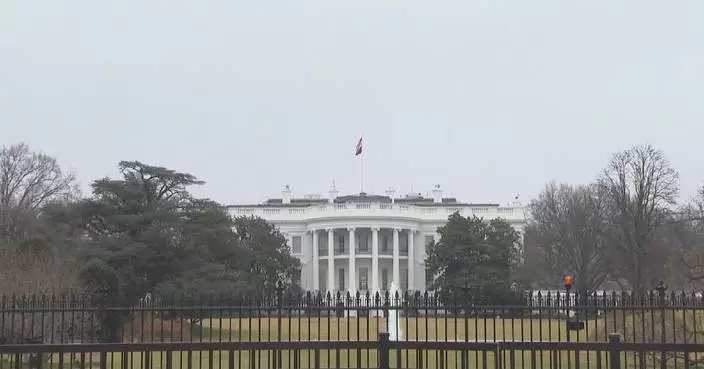
US delays further tariff hike for upholstered furniture, kitchen cabinets, bathroom vanities
- Dozens dead, 100 injured after explosion in Swiss ski resort Crans-Montana: police
- 1 pct tax on remittances from US takes effect on Jan 1
- Saudi-led airstrike on Yemen's Mukalla port damages homes, sparking fear among locals
- Indonesia welcomes birth of giant panda cub in conservation milestone
- Displaced Palestinians pin New Year’s hopes on recovery amid uncertainties
- Int'l Snow Sculpture Art Expo opens in Heilongjiang
- China's southernmost city Sansha holds flag-raising ceremonies to usher in New Year
- Japan-China Workers Exchange Association president condemns PM Takaichi's remarks on China's Taiwan
- Heatwave hits South American countries ahead of New Year holiday
Category · News

Public Consultation Begins for Now TV's Pay TV Licence Renewal

Japan's emperor and his family greet New Year well-wishers

Durant has been hurt the way Jokic was. He hopes the Nuggets star doesn't also become 'injury prone'

Quick strikes from Caufield and Anderson help Canadiens rally for 7-5 win over Hurricanes

Letang scores in OT in his 1,200th game to give Penguins 4-3 win against Red Wings

Matthews scores a hat trick to lead Maple Leafs to 6-5 comeback win over Jets
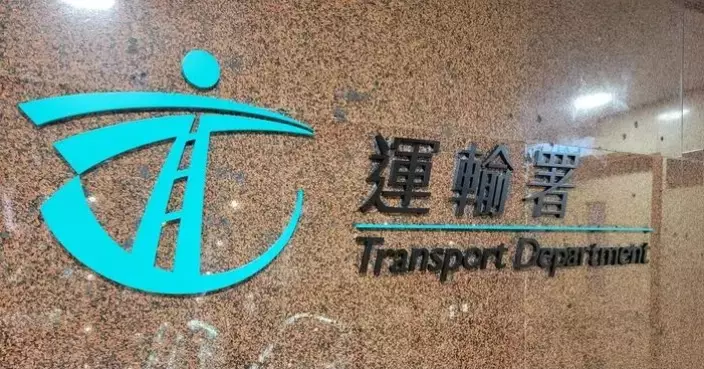
Transport Department Invites Applications for New Minibus Route License in New Territories

Cirelli, Goncalves key Lightning's 3rd-period comeback for their 6th straight win, 5-3 over LA Kings

Norman Powell scores 36 points to lead Heat past Pistons 118-112
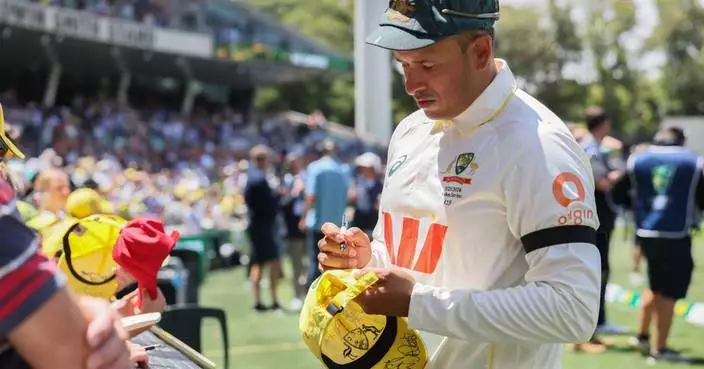
Pakistan-born Australian Khawaja, set to retire from cricket, criticizes racial stereotypes

Emerging MCU Force ARTERY-KY to Be Listed on TPEx in January 2026, Driving High-Performance Growth Through MCU, Customization, and Edge AI

Blackhawks coach Jeff Blashill praises Connor Bedard after the center is left off Canada's roster

Durant and Thompson lead the Rockets past the Nets 120-96 for their 4th straight victory
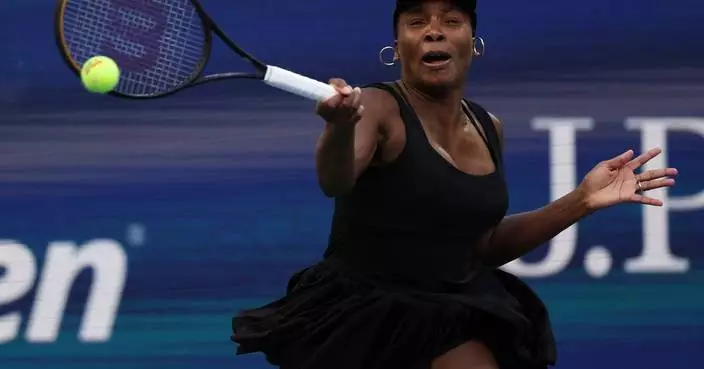
Venus Williams is back at the Australian Open 5 years after her last appearance, 28 after her 1st

Nuggets' injury woes continue as Jonas Valanciunas sidelined for a month with strained calf

A Diamond is Forever And Lane Crawford Launch "The Forever Gifts: A Natural Diamond Series"

Oregon-Indiana headed for a rematch, this time with a spot in the national title game at stake

Saints receiver Chris Olave expected to miss season finale at Atlanta after being hospitalized

Right-hander Tatsuya Imai and Houston Astros agree to $54 million, 3-year contract, AP source says
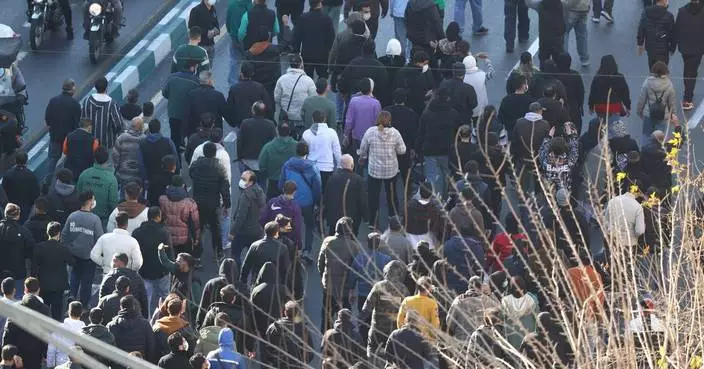
At least 7 reported killed during widening protests in Iran sparked by ailing economy
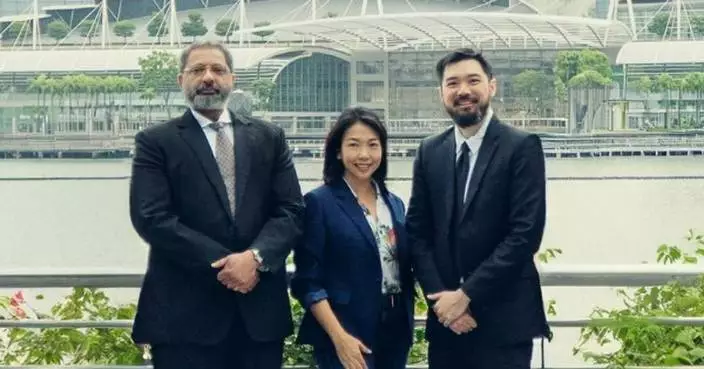
Three Partners Launch Independent Law Practice Following Departure from Mayer Brown PK Wong & Nair

Harrison Smith stays in the moment with the Vikings, as his 14th season winds down
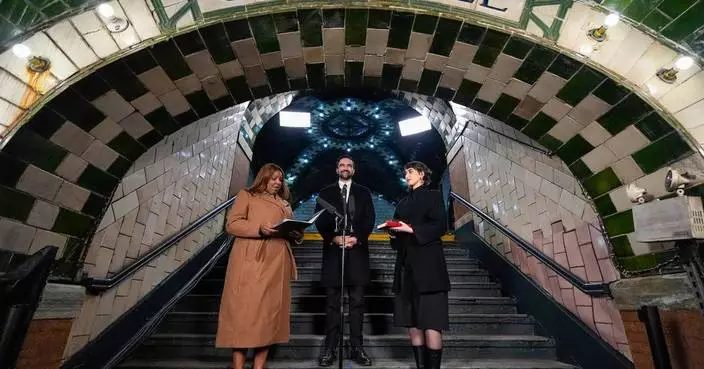
Zohran Mamdani promises to govern 'expansively and audaciously' in inaugural speech as NYC mayor

Napheesa Collier will have surgery on both ankles and be sidelined for four to six months

Wembanyama's MRI shows no ligament damage in hyperextended knee; All-Star to miss Spurs-Pacers game

Dylan Guenther has 1st career hat trick to send Mammoth to 7-2 victory over Isles

Trump, in interview, defends his energy and health, offers new details on screening he underwent

Man City and Liverpool frustrated in 0-0 draws in Premier League to leave Arsenal with 4-point lead
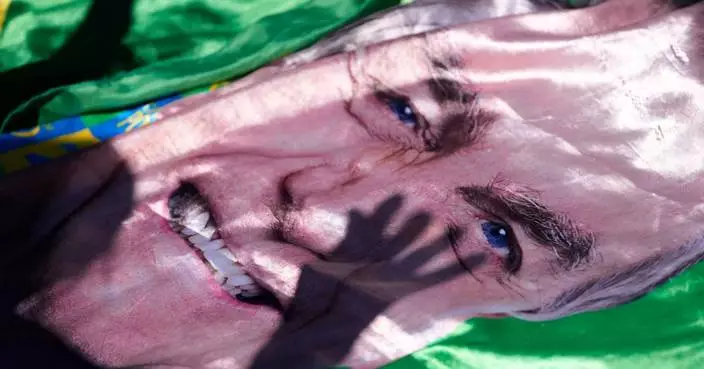
Brazil's Bolsonaro leaves hospital and returns to jail in capital Brasilia

CHP Urges Vulnerable Groups to Take Precautions Amid Cold Weather Conditions

Packers to start QB Clayton Tune in regular-season finale at Minnesota

Zetterlund's 10th goal of the season late in the 3rd period gives Senators a 4-3 win over Capitals

Texas two-step in CFP has Miami within a win of playing for a national title at home
Shenzhen embraces influx of visitors on first day of 2026

A Georgia-Ole Miss rematch provides ample intrigue to their CFP quarterfinal clash at the Sugar Bowl

Browns' draft class poised to accomplish rare milestone despite 4-12 record

Tineco Debuts Modern Living Concept and Latest Smart Cleaning Lineup at CES 2026
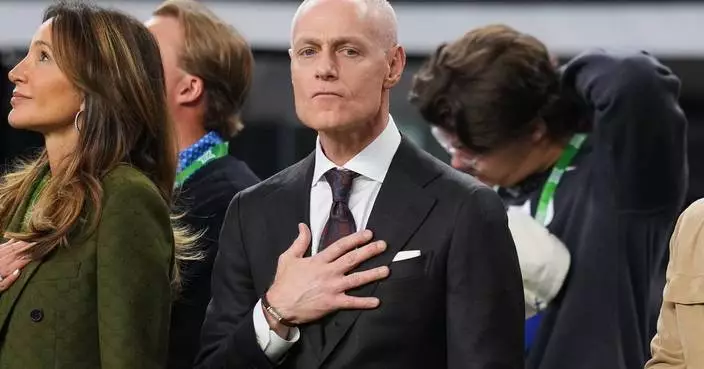
More campus games? Big 12 commish says 'everything is on the table' when it comes to playoff reboot
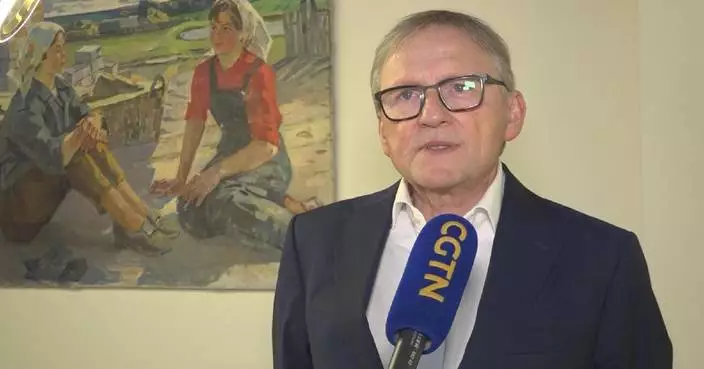
China’s development focuses on people's well-being rather than competition: Russian special envoy
China's development path contributes experience to global development: experts
US delays further tariff hike for upholstered furniture, kitchen cabinets, bathroom vanities

Baltimore's Lamar Jackson says he's playing Sunday at Pittsburgh: 'A hundred percent'

Trump delays increased tariffs on upholstered furniture, kitchen cabinets and vanities for a year

Rain soaks Rose Parade in California and snow squalls hit Midwest and Northeast on first day of 2026

Outdoor hockey. In Miami. It's finally going to happen on Friday, when Panthers play Rangers

Georgia Tech wide receiver Bailey Stockton announces plans to enter transfer portal

Bad Bunny's 'Debí Tirar Más Fotos' could make Grammy history

Maresca leaves Chelsea midway through turbulent season after reported clash with ownership
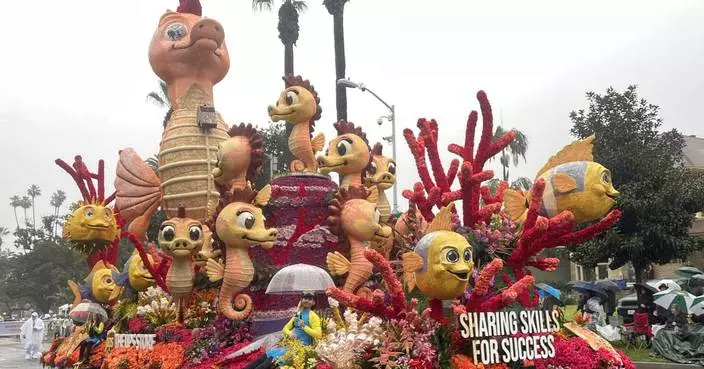
Artistic Entertainment Services Wins 6 Rose Parade® Trophies for its Float Entries

Yemeni transport ministry says Saudi Arabia mandated inspections of flights between Aden and UAE

Louis Rees-Zammit signs long-term extension with Bristol Bears
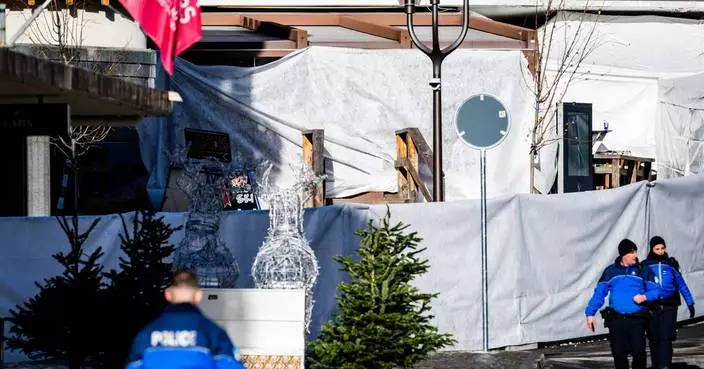
Here's what to know about a deadly fire at a Swiss Alpine bar's New Year celebration

Lions roar and Eagles fly: All the 24 teams' nicknames at the Africa Cup of Nations
Dozens dead, 100 injured after explosion in Swiss ski resort Crans-Montana: police
1 pct tax on remittances from US takes effect on Jan 1

Zohran Mamdani officially sworn in on a Quran full of symbolism

Pro Picks: Panthers, Ravens will win their divisions. 49ers will edge Seahawks for NFC's No. 1 seed

Many memories remain as the Buffalo Bills bid farewell to their long-time home dubbed 'The Ralph'
Xinjiang's Grand Bazaar marks arrival of New Year with performance

Gabon's government appears to have suspended national team and fired staff after poor Africa Cup

CIM Group Signs Lease with Atlanta Soul Food Icon The Busy Bee for New Location at Centennial Yards

Sephora Unwraps Another Year of Beauty with its 2026 Beauty Insider Birthday Gift Offerings

A look at some of the worst fires in bars, nightclubs and music venues

New Year's Day: What's open? Retailers. What's closed? Government and banks

Miami beats defending national champ Ohio State 24-14 in the CFP quarterfinal at Cotton Bowl

Health subsidies expire, launching millions of Americans into 2026 with steep insurance hikes

Yau Ma Tei Police Station Exhibition Opens: Explore Hong Kong's Cinematic History!
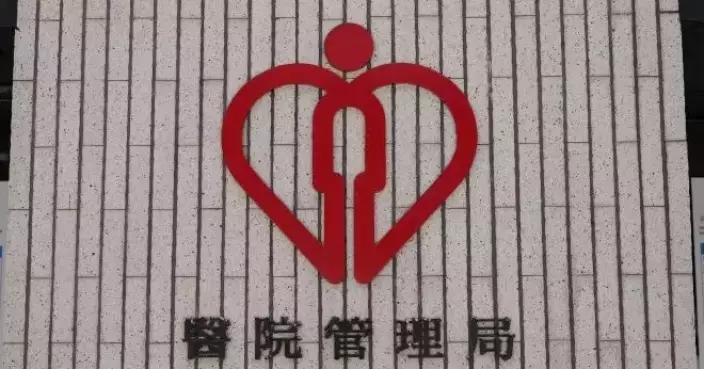
Hospital Authority's Healthcare Reform Successfully Implemented, Ensuring Smooth Operations Post-New Year Holiday

Commerce Bancshares, Inc. Completes FineMark Holdings, Inc. Acquisition

Entering Orange Bowl, Texas Tech and Oregon coaches remembering their roots

Cash machines in Bulgaria issue euros for the first time after joining the currency union

Public Healthcare Fee Reform Officially Launched, Enhances Patient Protection and Accessibility in Hong Kong Hospitals
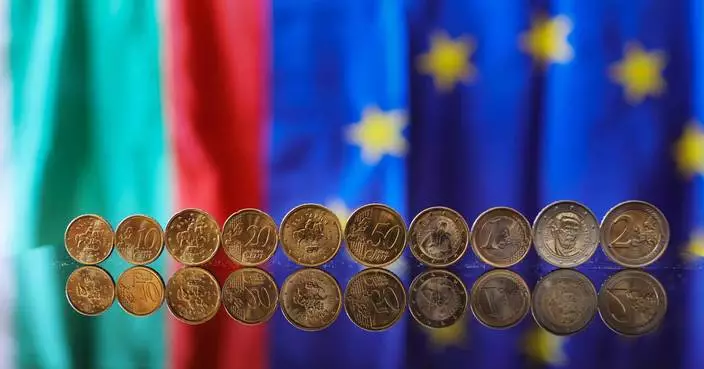
Bulgaria is joining the euro. Here's what it means for consumers and businesses
Saudi-led airstrike on Yemen's Mukalla port damages homes, sparking fear among locals
Recap of China-US ties in 2025
Cross-regional passenger trips in China expected to go up 21 percent on New Year's Day
China's trade-in program generates sales of over 2.6 trillion yuan in 2025: data
Chinese immigration authorities expand services to facilitate New Year border crossings
Qingdao Port deploys China’s first vacuum-based automated mooring system
Indonesia welcomes birth of giant panda cub in conservation milestone
Displaced Palestinians pin New Year’s hopes on recovery amid uncertainties
Xi's New Year message highlights consistency of China's development, positive global impact
Int'l Snow Sculpture Art Expo opens in Heilongjiang

No New Chikungunya Fever Cases Reported in Hong Kong, Total Stands at 82 for the Year


